Ranking Every Spider-Man Universe Movie from Worst to Best
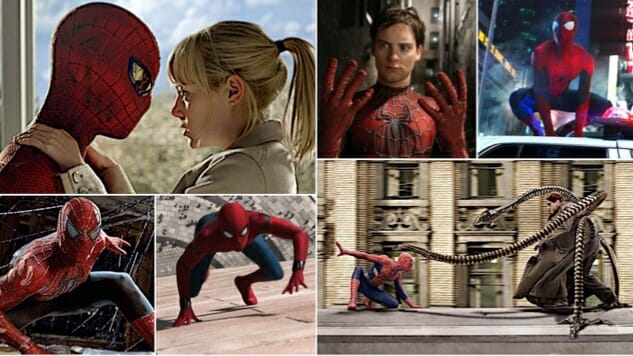
Not counting the 1977 TV movie—and it’s best for everyone that we not count that one—there have now been at least 10 different Spider-Man feature films, and a litany of ill-advised spinoffs that allude to the webcrawler and feature some of his comics co-stars, but have never been so lucky as to snag the character himself. At this point, there are more Spider-Man-related movies than there are in the Friday the 13th or Nightmare on Elm Street series; even the constantly rebooted Batman doesn’t have this many solo movies. Of course, then, a ranking must be in order, for future streamers, and to put those bizarre Spidey-adjacent villain vehicles (which may have blessedly come to an end with Kraven the Hunter) in their proper place. With great ranking comes great responsibility:
16. Morbius (2022)
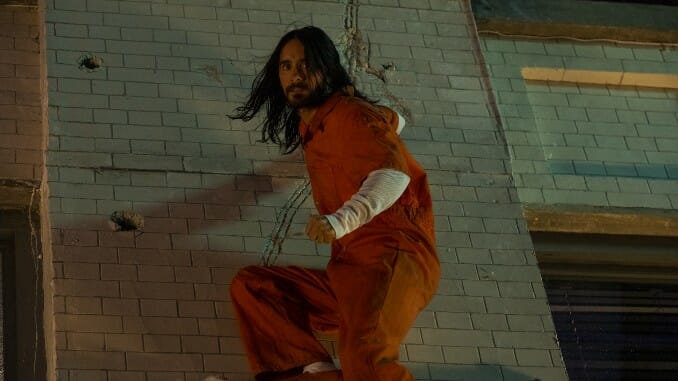
If the Venom film series began as a strange experiment in making Spider-Man without Spider-Man, Morbius is at once stranger still, and more mundane: A Venom without Venom, with Jared Leto as another super-monster who must try to contain the beast within. Alas, this 90-minute movie padded out with the blockbuster-standard extra-long credits (complete with the obligatory pair of mid-credits tease scenes that have nothing to do with anything in the movie you just watched) confounds its own momentum by offering more of a situation than a story—or even a mood. Beyond whatever scenes have been reworked, recut or just plain deleted from an abbreviated final cut, the movie shies away from the vampirism that could have made this more than a swift origin story: There’s surprisingly little blood in this sucker and, of course, eroticism is largely eschewed. The movie is most enticing when Dr. Michael Morbius feels like a threat to himself and/or others, and that feeling isn’t allowed to linger. (See full review.) —Jesse Hassenger
15. Venom (2018)

Ruben Fleischer’s unabashedly pulpy Venom sometimes feels quite special. It exists on its own—it concerns itself with modern problems in a modern world, but it acts like an early-2000s sci-fi blockbuster, molecularly unable to take itself seriously. It relies on a popular existing property within a genre enjoying unprecedented popularity, populated by Oscar-winning actors and unheard-of budgets, but it doesn’t pretend to have any claim to the well-established universes it can only point to, would seem to never dream of awards talk or critical love. It has Tom Hardy chewing so gleefully through its celluloid we should have talked awards and should have flirted with better critical love, but it also doesn’t quite do much of anything, doesn’t quite go far enough, with the insanity it potentially wields. It’s not a buddy comedy, but it’s also not not a buddy comedy. Venom could have been the most original superhero movie to come out in a long time, had it been released ten years ago. They just don’t—and one could argue for good reason—make movies like this anymore. —Dom Sinacola
14. Venom: The Last Dance (2024)
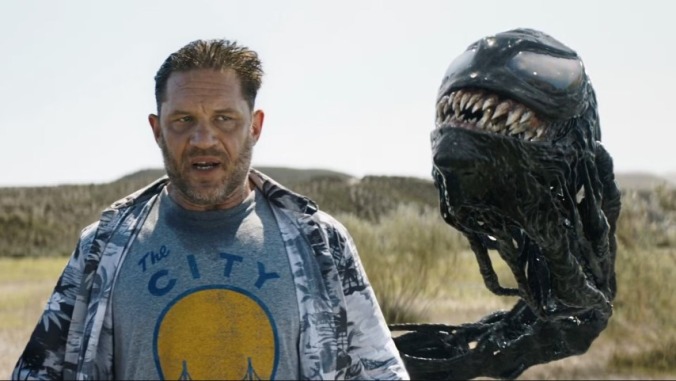
The most surprising part of this third installment is its flirtation with mortality, with Tom Hardy’s leathery mug projecting a stoic yearning whenever he and his symbiote friend voice their hopes for a happy ending, should the chips fall that way. A traveling hippie family contributes to this sense of longing that director Kelly Marcel (sharing story credit with Hardy) aims to establish before the alien action pops off, buoyed by a disarmingly sweet car ride singalong to David Bowie’s “A Space Oddity” halfway through the movie. The movie’s wildly contrasting moods eventually collide, just before the cacophonous, effects-laden madness that makes up the film’s final stretch. (See full review.) —Jarrod Jones
13. The Amazing Spider-Man 2 (2014)

Freed from much of the awkwardly executed origin re-retelling of its 2012 predecessor, The Amazing Spider-Man 2 should have more life to it. In his second turn at the helm, director Marc Webb has a solid cast of returning stars and high-caliber newcomers, and a budget befitting one of Sony’s big gun properties. Nonetheless, in many ways this second installment of the rebooted Spidey is worse than the first. How can that be?
Oh, yeah … the script.
When not being presented with yet another Screenwriting 101 exercise in ratcheting up dramatic tension through the accumulation of subplots, the movie feels like a test pilot of Young Spider-Man on The CW. Andrew Garfield and Emma Stone have nice chemistry, but whoever thought moviegoers would rather watch the two of them talk about their relationship rather than Spider-Man, Spider-Man, doing whatever a spider can … well, that person doesn’t understand what makes a good superhero flick tick. Ultimately, The Amazing Spider-Man 2 is noteworthy for one thing—not waiting until the third or fourth film to achieve the overstuffed, increasingly garish look one associates with less popular (2007’s Spider-Man 3) and outright ridiculed (1997’s Batman and Robin) franchise efforts. (See full review.) —Michael Burgin
12. The Amazing Spider-Man (2012)

Marc Webb’s film proves that rebooting a successful franchise is no sure thing. First, a reboot works best with properties that have become stale, over-burdened by conflicting bits of canon or weakened by over-exposure. Only ten years removed from the first film (and five from the third), it’s not like Raimi’s trilogy was a distant memory for viewers. Considering the films occupy spots #1 through #3 in all-time box office for Sony/Columbia, it’s tough to argue flagging interest, either. Finally, unlike another popular rebooted property, Star Trek, where its heroes’ early days have been untouched on film—and thus make for intriguing fan-bait—Spider-Man’s origin story is a central part of his Big Screen tale. As a result, Webb was faced with a daunting proposition: Retell a story that was just told (and told well) a few years earlier—and, oh yeah, no major changes to the origin allowed. Perhaps this stricture explains why The Amazing Spider-Man feels less like a reboot than an extended paraphrasing of the plot points and emotional beats from the first two films in the Raimi/Maguire trilogy. But whether judged in relation to Raimi’s trilogy, compared with successful superhero franchises as a whole, or just rated on its own terms as an action film, the only thing amazing about Webb’s reboot is how quickly a Hollywood studio can forget the lessons its own films have taught it. (See full review.) —Michael Burgin
11. Venom: Let There Be Carnage (2021)

Is this Andy Serkis-directed monster mash the nadir of the Venom franchise, in that it’s nonsensical, self-conscious, and surprisingly tedious for a movie where two giant-tongued beasts attack each other with great ferocity and also one of the might be in love with a third creature-human hybrid? Or does all that count as the series apotheosis? It’s hard for any Venom agnostic to say. But at least this second installment isn’t burdened with a hasty origin story, nor a desire to hastily wrap things up as a neat little trilogy; in its gothic-lite (but still pretty stupid) way, it’s the Venom movie that feels the most at ease with itself. —Jesse Hassenger
10. Madame Web (2024)
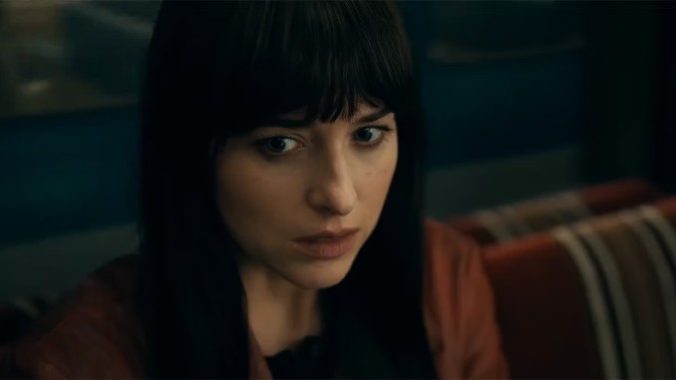
If the presence of a specific Britney Spears song or a can of Mountain Dew Code Red sounds beside the point of a movie where a woman (Dakota Johnson) develops spider-based powers of clairvoyance and reluctantly uses them to protect a mini-platoon of fellow spider-women, I assure you, it’s no less the point than anything else here. A bunch of surprisingly fussy period-piece details may actually be the key to the movie’s peculiarities, which are more easily explainable as a superhero adaptation from, yes, 2003. Not Hulk, mind; nothing so gracefully strange, nor so crackerjack entertaining as X2. But Daredevil… yes, this does feel a bit like Daredevil, with a much better soundtrack. At times, it feels as if the filmmakers hope to turn the clock back 20 years, when comics-to-film continuity was still the province of specialists, and a glorified origin story provided all the sequel tease audiences needed. Maybe that’s the best way to get permission for visual flourishes – twisty angles, inky blacks that practically bleed into the characters’ bodies – that would never make it into the MCU. Cinematographer Mauro Fiore also shot Spider-Man: No Way Home, and guess which movie makes better use of fake New York locations, of comic book color saturation, of the night sky? (See full review.) —Jesse Hassenger
9. Kraven the Hunter (2024)
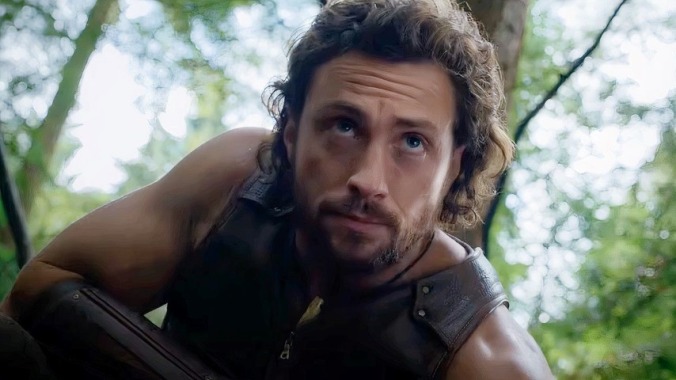
Sony’s experiment in monetizing Spider-Man’s various B-list enemies and friends comes to an end with … a movie that’s actually kind of fun? Make no mistake: J.C. Chandor’s flip of Kraven the Hunter from big-game boaster to sensitively Aquaman-like animal protector and criminal-hunting vigilante doesn’t make any sense for a series of movies about Spider-Man villains. Then again, none of these movies make much sense, and Chandor at least lends Kraven some low-stakes crime-movie splendor; it’s the rare superhero movie that’s really just about rival criminal families attempting to kidnap and/or kill each other’s members. Aaron Taylor-Johnson capably underplays as Kraven, letting Alessandro Nivola (as the man who would be Rhino) and Russell Crowe (as Kraven’s mobster dad) ham it up accordingly. This isn’t much more than B-movie trash, but it’s competently made B-movie trash, which is a lot more than you can say for a lot of superhero adaptations of late. —Jesse Hassenger
8. Spider-Man 3 (2007)

A cautionary tale in how a successful franchise can maintain most of the ingredients in its creative team, and yet still be derailed by what seems like the smallest of adjustments. Sure, Spider-Man 3 was a financial success—$890 million or so in worldwide box office on a budget of $258 million—but it also sported some “classic” transgressions of the genre. There’s the overly convenient—and worse, unnecessary—sewing together of plot points that were originally disparate. (Flint Marko is also the man who shot Unca Ben!) There’s the cramming of too many subplots and villains into the movie (the latter tendency perhaps best thought of as a Schumacher Effect). And then there’s a few eyebrow-raising moments unique to the film, like, sigh, that Jazz club scene. All in all, it represents a sudden low for anyone relishing the high of its predecessor, and the end of the Raimi-Maguire era. —Michael Burgin
7. Spider-Man: No Way Home (2021)
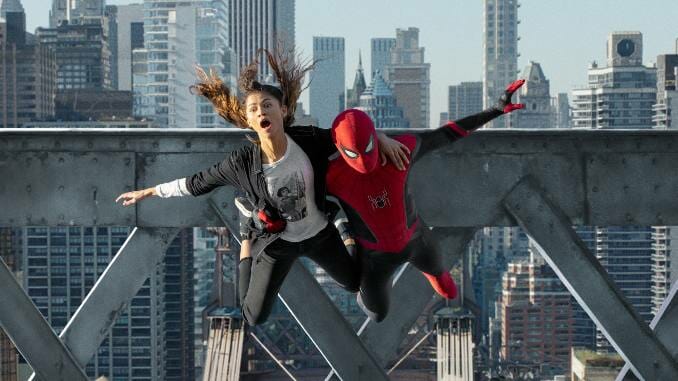
Spider-Man: No Way Home holds no surprises. It delivers what’s expected and whether you cry “spoilers” or not, you likely already know exactly what I mean. That’s what the film is hoping for, as its premise—that Peter Parker (Tom Holland) has come so far from his enjoyably low-key Homecoming, his secret identity known thanks to Far From Home, that he must literally toy with fate spanning far beyond his own universe—assumes its audience has a working knowledge and appreciation of two decades of Spider-Man cinema. The multiverse, which supplemented the Oscar-winning Spider-Man: Into the Spider-Verse origin story with explosive animated verve, is the only force at work here. It is a massive fan servicing crossover, with the MCU bringing staggeringly little to the fold like a potluck mooch. It is a metatextual collage, which often overshadows the actual text—it’s easy to miss the movie for the Easter eggs. No Way Home is an intriguing case study of corporate collaboration, a self-aware meme machine, and a lackluster movie that understands its hero so well that the disservice stings all the greater.
Spirits are high when the credits roll. But all you really remember is the last fifteen minutes, not the two hours that got you there. It feels a bit like it was figured out first, and the rest slapped together to fill time until they got there. With the way Marvel movies consistently resemble flowchart bubbles, less entities than operations, it might just be how things work. —Jacob Oller
6. Spider-Man: Far from Home (2019)

Coming on the heels of the hefty hunk o’ cinematic event that was Avengers: Endgame, Spider-Man: Far from Home is, as one would expect, much lighter fare. That doesn’t stop this 23rd and final entry in the MCU’s initial Feige Phase barrage from serving as an effective coda for Endgame even as it presents what is, in many ways, a classic Spider-Man adventure.
Along with having a Grade A capturing of a C-tier villain (Mysterio), Spider-Man: Far from Home is (relatively) small, sincere and funny, and has more than your usual MCU allotment of post-credit bombshells. Though a comparatively recent addition to the Marvel Cinematic Universe, this is already Tom Holland’s fifth film as Spider-Man in three years. Like so many other casting decisions made in the MCU, he’s proven himself near perfect in the role. No Golden Age lasts forever, and the MCU will eventually stumble—but as long as they can spin box office (and audience) gold from relatively the Mysterios and Vultures of Spidey’s rogues gallery, it won’t be Holland’s Spider-Man that is the first to stumble. (See full review.) —Michael Burgin
5. Spider-Man: Homecoming (2017)

It’s simultaneously easy and impossible to forget that Spider-Man: Homecoming is part of the Marvel Cinematic Universe. Easy, because unlike most every MCU film before it, with the partial exception of Doctor Strange, it manages to extricate its characters (and especially its scope) from the world-ending catastrophes faced by The Avengers to tell a story that is a little bit more “close to the ground,” to use Tony Stark’s (Robert Downey Jr.) own words. Impossible because, well, Tony Stark is in this. Quite a bit, actually. Nevertheless, Homecoming manages to pull off the most difficult feat for just about any franchise installment: It justifies its own existence. Briskly paced and charming to a fault, it’s a Spider-Man movie that fully embraces both its source material and the perils of 21st century teenage life. (See full review.) —Jim Vorel
4. Spider-Man: Across the Spider-Verse (2023)
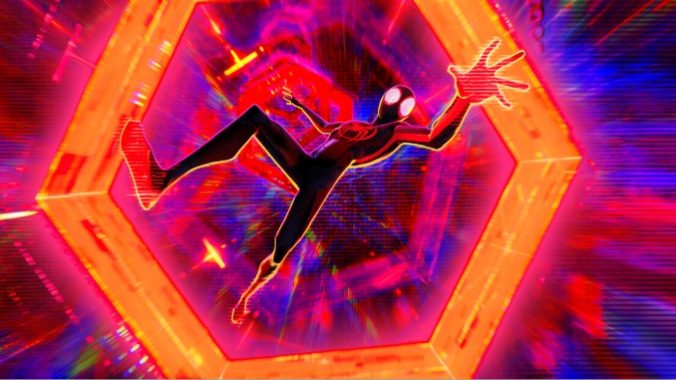
If you’re a long-time Spider-Man comics fan, Across the Spider-Verse is going to be your every Spidey dream come to life. And even if you have a far more casual relationship with the webslinger, the script and directors frame every new introduction in witty ways so the story and particular quirks of every new Spidey is distilled clearly and evocatively for the audience. There’s a precision to the important cast additions, and a more impish “did you see that?” quality to the presentation of the Spideys en masse when they are collected in the second act. So, be warned that this is a movie that requires frame-by-frame rewatches. If there’s any critique, it’s that the more action-centric sequences are almost too detailed, so that the incredible work of the animators moves off-screen so quickly that you feel like you’re not able to fully appreciate everything coming at you. (See full review.) —Tara Bennett
3. Spider-Man (2002)

If this was a list of the most influential or important superhero films, then Sam Raimi’s 2002 film would come in well ahead of its 2004 sequel—perhaps even top three. Though there had been a few Marvel movies before it (X-Men, Blade), Spider-Man showed how exhilarating it could be when a film strove to do the Marvel universe justice rather than apologizing for and obscuring the source material. Granted, a few decades and casting iterations from now, Tobey Maguire will likely not be considered the best Spider-Man ever, but he was good enough. (And J.K. Simmons’ turn as J. Jonah Jameson will likely never be touched.) More importantly, in the hands of Raimi, a Spider-Man fan with chops, Spider-Man carried with it the same species of wonder that Jurassic Park had—instead of “Wow, this is what it would be like to see real dinosaurs,” we got to see what it was like for a comic book to come to life. —Michael Burgin
2. Spider-Man 2 (2004)

Sam Raimi’s second turn at the franchise helm yielded what at the time was arguably the best superhero film ever, and one that, as its ranking on this list shows, holds up well a decade later. Spider-Man 2 relies on the same formula which made the first so well-received—non-intrusive fan service/call backs to the classic comics coupled with a faithful-enough rendition of a classic Spider-Man villain. Though his origin drifts a bit from the comics, Alfred Molina’s Doctor Octopus is a delight, giving the film an emotional resonance on both sides of the classic hero/villain dichotomy even as it provides the wall crawler with an intelligent, deadly foe. The film also features one of the best fight scenes in the history of comic book films, made even better by the emotional punch of its conclusion, as an unconscious Spidey is supported and protected by the New Yorkers he has saved. Sadly, this effort would prove the apex of the Raimi/Maguire/Sony collaboration—and the best of the Spider-Man films thus far—though with the webslinger’s inclusion in the MCU, there’s hope. —Michael Burgin
1. Spider-Man: Into the Spider-Verse (2018)

Spider-Man: Into the Spider-Verse is that rare film where ingredients, execution and imagination all come together in a manner that’s engaging, surprising and, most of all, fun. Directors Bob Persichetti and Peter Ramsey, writer-director Rodney Rothman, and writer Phil Lord have made a film that lives up to all the adjectives one associates with Marvel’s iconic wallcrawler. Amazing. Spectacular. Superior. (Even “Friendly” and “Neighborhood” fit.)
Into the Spider-Verse shoulders the immense Spider-Man mythos like it’s a half-empty backpack on its way to providing Miles Morales with one of the most textured, loving origin stories in the superhero genre. It also provides simultaneous master classes in genre filmmaking. Have you been wondering how best to intersperse humor into a storyline crowded with action and heavy emotional arcs? Start here. Do you need to bring together a diverse collection of characters, nimbly move them (together and separately) from setting to setting and band them together in a way that the audience doesn’t question? Take notes. Do you have an outlandish, fantastical concept that you need to communicate to the viewers (and characters) without bogging down the rest of the story? This is one way to do it. Would you like to make an instant contemporary animated classic? Look (and listen).
Ultimately, this particular intensely collaborative endeavor clicks on all cylinders in a manner even the MCU could learn from. As a result, Spider-Man: Into the Spider-Verse vaults into consideration not only as one the best Spider-Man films ever, but as one of the best superhero films yet made. (See full review.) —Michael Burgin







































